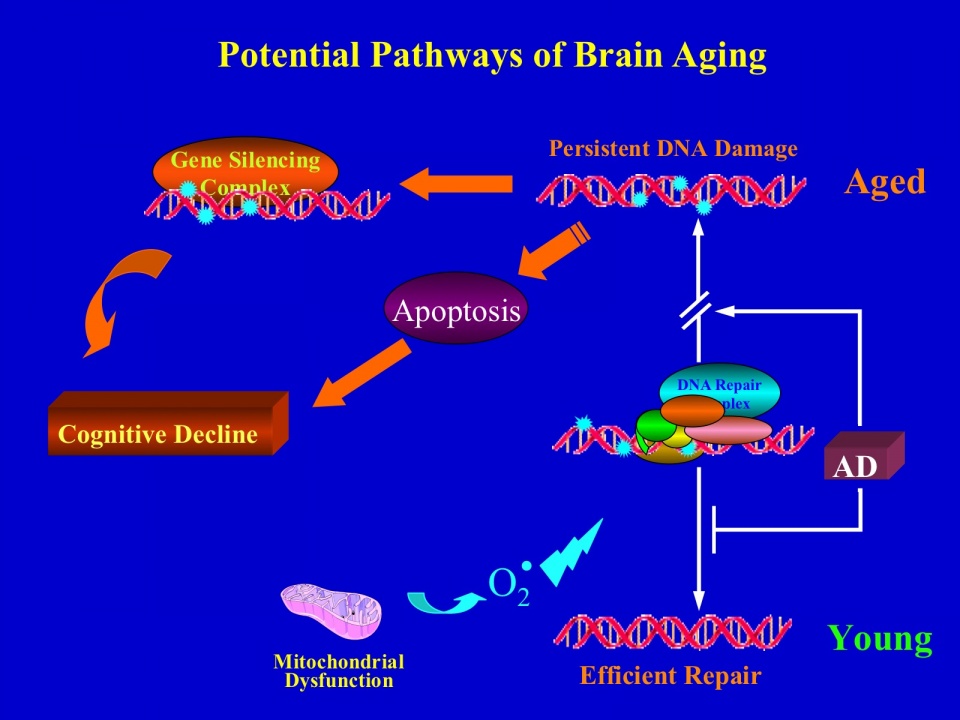Our lab has shown that the aging of the human brain is associated with DNA damage that may contribute to altered expression of genes involved in synaptic plasticity. We have also found that a particularly severe type of DNA damage, double strand breaks, appears in the brains of AD patients. To increase our understanding of the consequences of genome instability in the brain, we are characterizing a brain-conditional deletion of the XRCC4 gene that mediates DNA repair in the NHEJ pathway. Conditional XRCC4-deficient mice exhibit unrepaired DNA double strand breaks that accumulate predominantly in neurons and increase with age. A second project in collaboration with the Elledge lab at Harvard Medical School focuses on the role of GATA4, which was recently identified as a key senescence-inducing factor in the DNA damage response. GATA4 is unexpectedly induced in the aging brain together with other senescence related factors, raising the possibility that senescence may play a role in the aging of postmitotic neurons as well as replicative cells. Finally, we are embarking on a project to analyze somatic mutations in neurons of the aging brain using single cell next generation sequencing.
Blavatnik Institute
Department of Genetics
Department of Genetics
Genome Instability, Aging and Neurodegenerative Diseases
Copyright © The President and Fellows of Harvard College
